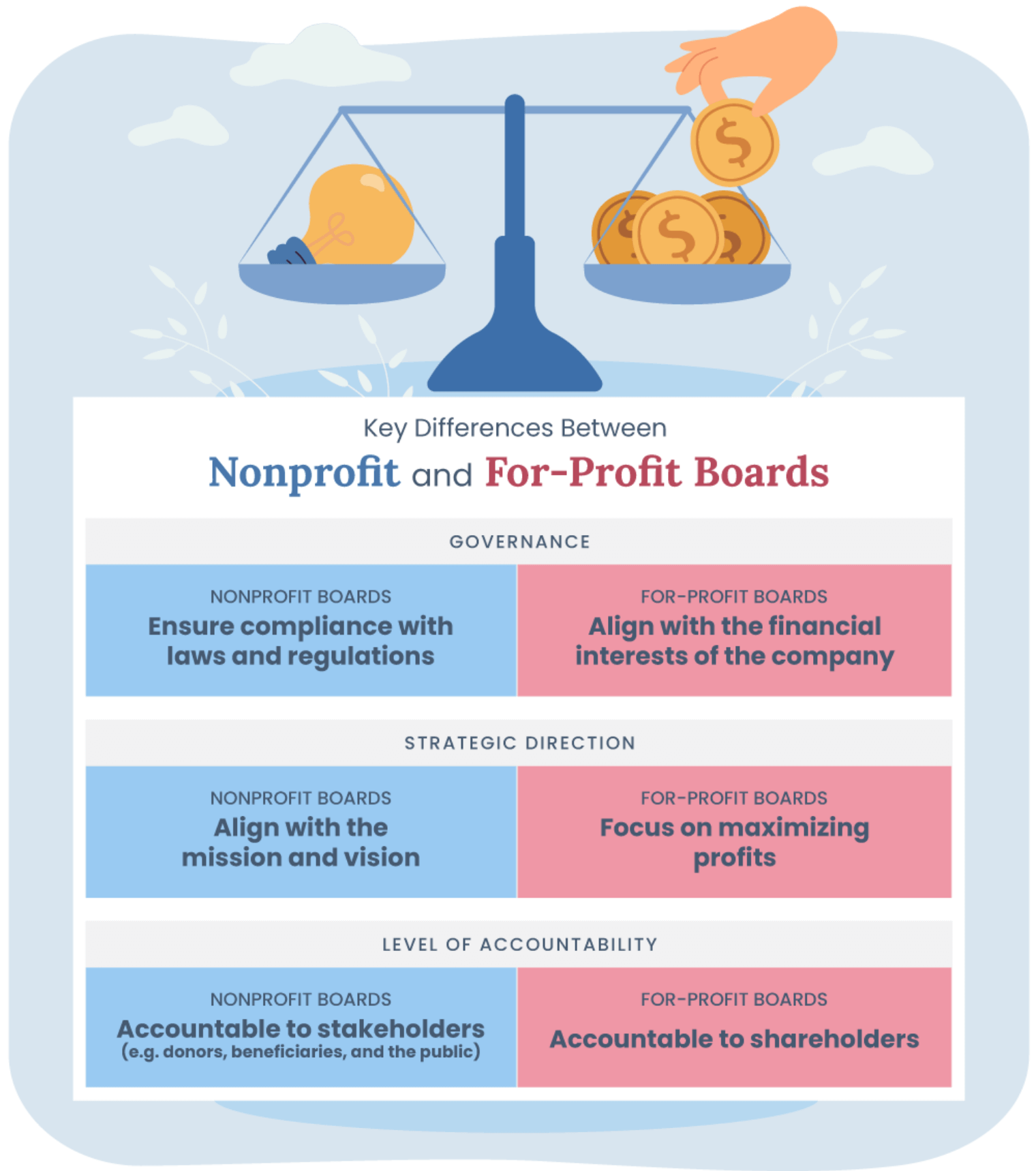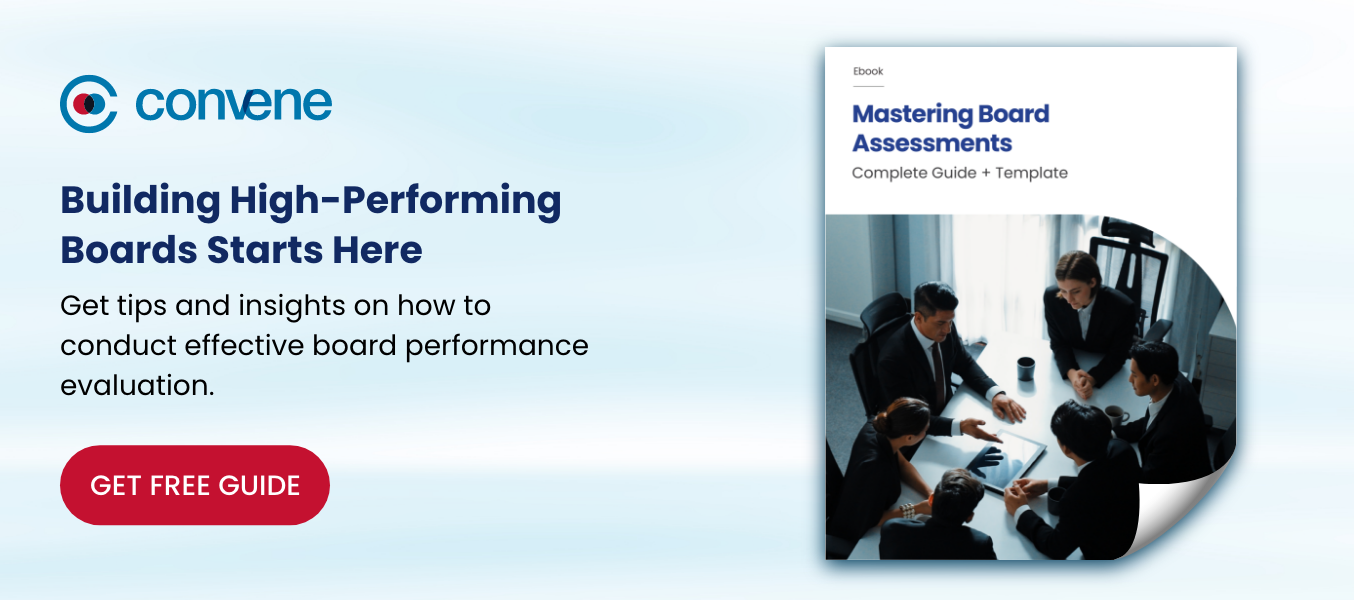In these unprecedented times, businesses face more challenges than ever before, from supply chain disruptions to changing consumer behaviors. Amidst all this uncertainty, one key element of corporate success remains constant: a strong board of directors.
One of the most important functions of the board is to guide the strategic direction of an organization and ensure it’s operating in the best interest of its stakeholders. With the increasing complexity of global marketing, having a competent board of directors can’t be overstated.
This article will explore the critical functions that a board of directors plays in the organization’s success, and give you insights into how to build and maintain a strong board.
Understanding the Optimal Size of a Board of Directors
The size of a board of directors influences the level of expertise, diversity, and communication among its members, making it critical for organizational success. According to recent studies, the average board size varies by industry. In 2021, financial services companies have the largest boards with an average of 10.7 directors, while the healthcare sectors hold the smallest boards with an average of 8.3 directors.
Generally, a larger board may provide a wider range of perspectives and expertise, but can also lead to slower decision-making and difficulty in communication. On the other hand, a smaller board may spend less time in discussions and decisions but may lack the diverse range of expertise needed to drive innovation and growth.
How many directors does your board need?
The number of board directors in a company varies depending on various factors, such as the company’s size, industry, and ownership structure. Smaller companies may have between three to seven board members, while larger companies can have up to 15 or more directors. However, there is currently no consensus on the ideal size of a board.
In some cases, the number of seats for early-stage companies is three to five, with five being optimal. Others suggest that smaller companies must not exceed seven directors and electing an uneven number of directors prevents ties during voting.
A well-composed board with the right balance of expertise, diversity, and independence can significantly contribute to the company’s growth and success.
How does the board election process work?
The process of board elections is a critical aspect of corporate governance. It typically involves several stages, including nomination, election, and appointment. However, the election procedures may vary depending on the organization, its industry, and its respective bylaws.
To conduct a seamless election procedure, these aspects must be taken into account:
- Nomination is crucial for identifying qualified candidates, encouraging member engagement, promoting inclusivity and diversity, and enhancing transparency and accountability. Current directors can nominate capable candidates, or potential candidates can volunteer themselves and collect signatures from fellow members. Nominations play a pivotal role in upholding the principles of good governance and ensuring that the board represents the interests of the organization and its stakeholders.
- Voting method used in board elections has a significant impact on fairness, efficiency, and transparency. It’s crucial to choose an appropriate method, such as in-person, mail-in, online, or e-proxies, to ensure equal opportunities for participation. The selected method must maintain integrity and accuracy to uphold members’ trust. Prudent selection of a suitable voting method is imperative for credible and legitimate board elections in line with good governance principles. Read this article to learn about the board election process in detail.
The Main Function of a Board of Directors
In order for a company to achieve its goals, the board of directors must first perform its main functions effectively. These functions serve as the backbone of the board’s role in governing the company and ensuring its success. In this section, we will look at the key differences between nonprofit boards and for-profit boards in terms of function.
Key Differences Between Nonprofit and For-Profit Boards
Governance
- Nonprofit boards ensure compliance with laws and regulations, oversee the organization’s mission, and represent stakeholders such as donors and beneficiaries. They establish policies, procedures, and governance frameworks for effective oversight.
- For-profit boards are accountable to shareholders and responsible for decision-making that aligns with the financial interests of the company. They establish and enforce governance practices to ensure effective oversight of management and operations.
Strategic Direction
- Nonprofit boards set the strategic direction, aligning it with the mission and vision, and driving mission-driven initiatives and social impact. They engage in strategic planning and stakeholder engagement processes.
- For-profit boards focus on maximizing profits, market share, and shareholder returns. They engage in market analysis, financial planning, and risk management to drive revenue generation, profitability, and competitive positioning.
Level of Accountability
- Nonprofit boards are accountable to stakeholders, including donors, beneficiaries, and the public. They ensure transparency, ethical conduct, and responsible stewardship of resources, and comply with legal obligations.
- For-profit boards are primarily accountable to shareholders, with a legal obligation to act in the best interest of the company. They are responsible for financial performance, risk management, protecting shareholder interests, and complying with regulatory requirements.

Key Fiduciary Duties of a Board Member
As fiduciaries of an organization, board members have fundamental legal duties to fulfill. These duties encompass critical responsibilities that require board members to act diligently, with unwavering loyalty to the organization, and comply with all legal and ethical obligations.
- Duty of Care requires board members to act with a level of care, prudence, and diligence. They should make informed decisions, take reasonable risks, oversee the organization’s performance, actively participate in meetings, and be vigilant for governance issues.
- Duty of Loyalty requires board members to put the interests of the organization ahead of their own personal interests or those of third parties. They must avoid conflicts of interest and disclose any potential conflicts that arise. In case of a conflict of interest, the affected members are obligated to recuse themselves from participating in the discussion.
- Duty of Obedience requires board members to ensure the organization complies with all state and federal laws and regulations, and relevant bylaws and policies. They must also ensure that the organization’s activities and operations align with its mission and purpose.
By fulfilling these legal duties, the organization and its board can operate in the best interest of its stakeholders and prevent regulatory issues and hefty legal fees.
The Role and Responsibilities of the Board of Directors

As the governing body of an organization, the board of directors plays a critical role in overseeing its strategic direction, protecting its assets, and ensuring its financial well-being. Below is a list of the roles and responsibilities of the board:
Strategic Planning and Monitoring
- Set the organization’s strategic direction, defining its mission, vision, and values.
- Approve and monitor the implementation of strategic plans and initiatives.
- Evaluate the organization’s performance against strategic goals and make adjustments as needed.
- Assess potential risks and opportunities related to the organization’s strategic objectives.
Asset Protection and Financial Oversight
- Safeguard the organization’s assets, including financial, physical, and intellectual property.
- Review and approve the annual budget, financial statements, and financial policies.
- Oversee risk management practices, including identification, assessment, and mitigation of risks.
- Ensure compliance with financial regulations, reporting requirements, and internal controls.
Establish Committees and Working Groups
- Appoint committees or working groups, and set their scope and responsibilities.
- Require the committees or working groups to report on their activities and recommendations.
- Review decisions or proposals made by committees, and review any funding requirements.
- Assess the performance and contribution of the committees.
Selection and Performance Review of CEO
- Hire and appoint the Chief Executive Officer (CEO) or other senior executives.
- Evaluate the performance of the CEO, provide feedback, and set performance goals.
- Review and approve the compensation, benefits, and contracts of the CEO and senior executives.
- Provide support, guidance, and mentorship to the CEO in their role as the leader of the organization.
Governance and Compliance
- Establish and maintain effective governance practices within the organization, including the development and implementation of governance policies, procedures, and guidelines.
- Ensure compliance with applicable laws, regulations, and ethical standards.
- Review and approve organizational bylaws, articles of incorporation, and other governing documents.
- Monitor and address any governance or compliance issues that may arise.
Stakeholder Relationship Management
- Actively engage with stakeholders, including shareholders, employees, customers, suppliers, and the community.
- Understand and represent the interests of different stakeholders in board decisions.
- Maintain open and transparent communication with stakeholders, including regular reporting on the organization’s performance and progress.
- Manage relationships with key stakeholders to build trust, with the help of the corporate secretary as key liaison.
Ethical and Social Responsibility
- Set and uphold ethical standards for the organization, including promoting integrity, transparency, and accountability.
- Ensure that the organization operates in a socially responsible and sustainable manner.
- Monitor the organization’s compliance with ethical guidelines, codes of conduct, and corporate social responsibility initiatives.
- Address ethical concerns and take appropriate action to resolve them.
These duties collectively reflect the board’s crucial role in providing oversight, guidance, and strategic direction to an organization. Note that the board’s functions may vary depending on the organization’s unique requirements and structure.
The Need for Board Portal: Why Choose Convene?

As board scrutiny and responsibilities grow in numbers, having board portal software to ease the burden is highly recommended. Convene, a leading board portal in the market today, offers a secure, centralized platform that enables board members to collaborate, access information, and make informed decisions efficiently.
Convene stands out as the best option for boards due to its user-friendly interface, customizable features, and robust security protocols, making it a reliable platform for boards. Its advanced features such as e-signatures, meeting scheduling, and real-time voting help streamline the meeting process of modern boards.
Learn more about how Convene can transform your board meetings. Sign up for a free demo today!
Jielynne is a Content Marketing Writer at Convene. With over six years of professional writing experience, she has worked with several SEO and digital marketing agencies, both local and international. She strives in crafting clear marketing copies and creative content for various platforms of Convene, such as the website and social media. Jielynne displays a decided lack of knowledge about football and calculus, but proudly aces in literary arts and corporate governance.











